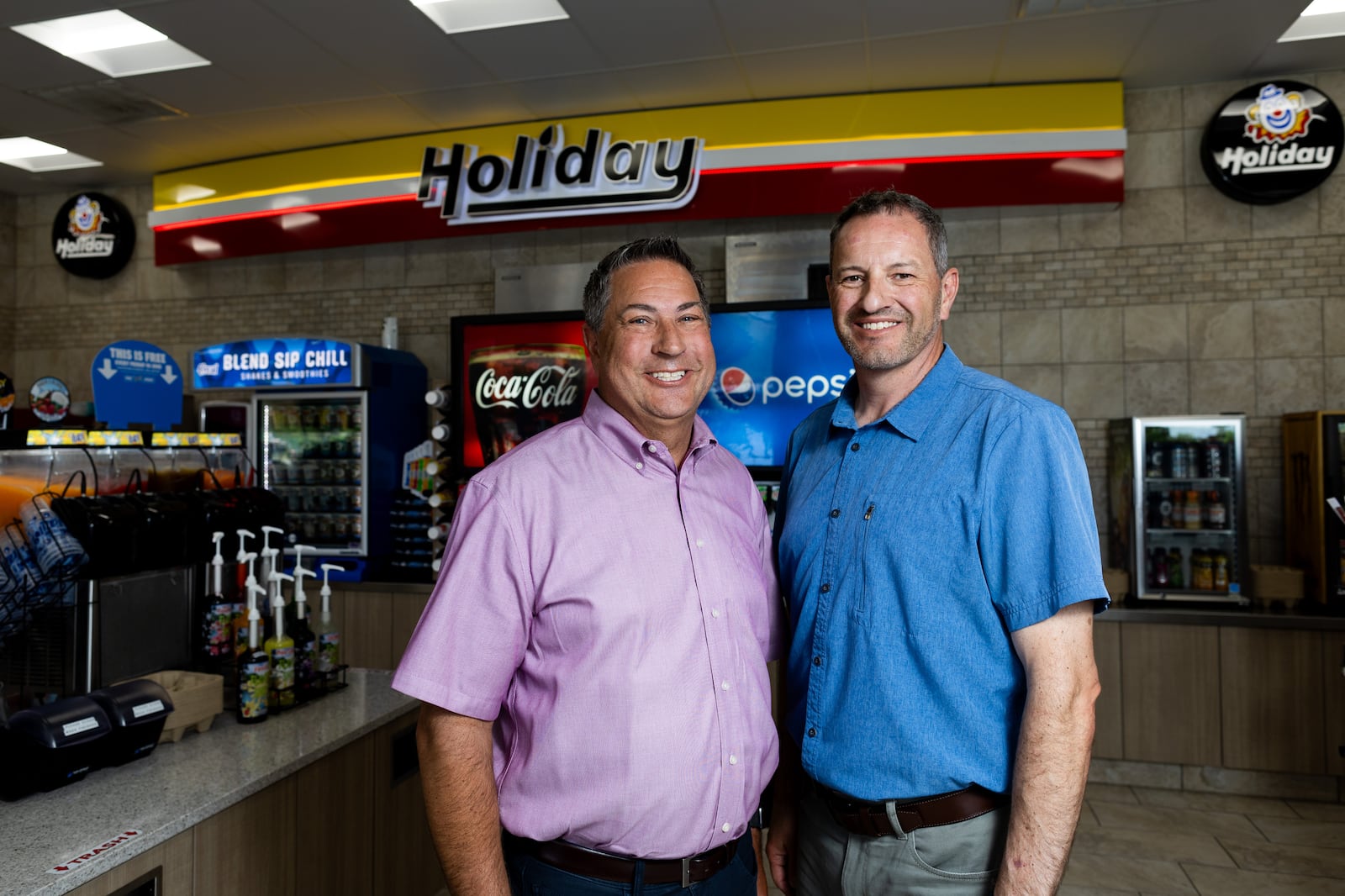This story appears in the December issue of Utah Business. Subscribe.
When Jerry Wagstaff was a teenager running his grandfather’s gas stations, he probably had no idea they would eventually become Utah’s iconic Holiday Oil. Today, the gas stations and convenience stores are spread throughout Northern Utah and are known for amazing Diet Cokes and the iconic green dinosaur in the parking lots of many locations.
The oil business is a family legacy. Jerry’s uncle helped start the oil refinery known as the Flying J brand today, and Jerry would lease gas stations from that uncle. Eventually, he made enough money that he bought a piece of property, built his own station and continued the model that has been the foundation of Holiday Oil over the years.The business has grown to 1,000 employees and 76 locations, with expectations to hit 100 stores by the end of the 2020s.
Jerry’s sons, Scott and Mike, became a big part of Holiday Oil’s soaring success. Their involvement became even more prominent when, in 2003, Jerry and his wife were asked to preside over the California San Francisco Mission for The Church of Jesus Christ of Latter-day Saints, which would require him to step away from the business for at least three years. Jerry handed the reins to Mike, who would act as president, while Scott would focus on real estate and managing the family trust.
That’s where the succession planning ended. And while Jerry’s death in 2022 was not sudden, there were misunderstandings about the business after his passing.
“My dad was very focused on the financial future,” Mike says. “Tax planning, setting things up for a trust — he was focused on that side of it. But that’s where the communication ended. He did not talk to the family about how it would carry on, who would do what or what he desired. That’s been very, very difficult for our family. … We hired some consultants to come in who were able to see things we couldn’t see. They helped us see things and do things in a different way.”
This confusion around succession planning is not uncommon.
A lack of succession plans
The STEP 2019 Global Family Business Survey revealed that 70 percent of family business leaders did not have a succession plan in place. These plans (or the lack thereof) may impact many Utah-based businesses — Utah has the fifth highest percentage of family-owned businesses (34.54 percent) according to OnDeck.
Family businesses are intricate entities. While many thrive on close relationships, the same dynamic can pose unique challenges. The Harvard Business Review reports that about 70 percent of family-owned businesses either fail or are sold before the second generation has an opportunity to take over. Only about 13 percent manage to sustain operations long enough for a third generation to step into leadership.
Despite the lack of a formal succession plan, 45 percent of global family business leaders said it was highly likely the businesses would “stay in the hands of the family in the future,” according to the STEP survey.
Even family members must earn their way to the top
When Nicole Mouskondis was competing as a gymnast for the University of Utah, she never foresaw leading Nicholas and Company — the 80-year-old food service business that belonged to her future husband’s family. But that’s exactly where she stands today.
“We’re going into the fourth generation of family in the business,” Mouskondis says. “We’re somewhat starting over again, which has been awesome. It has allowed us to really establish ground rules for our kids coming into the business. We require that they go work somewhere else for three years and be promoted before they can even interview at our company.”
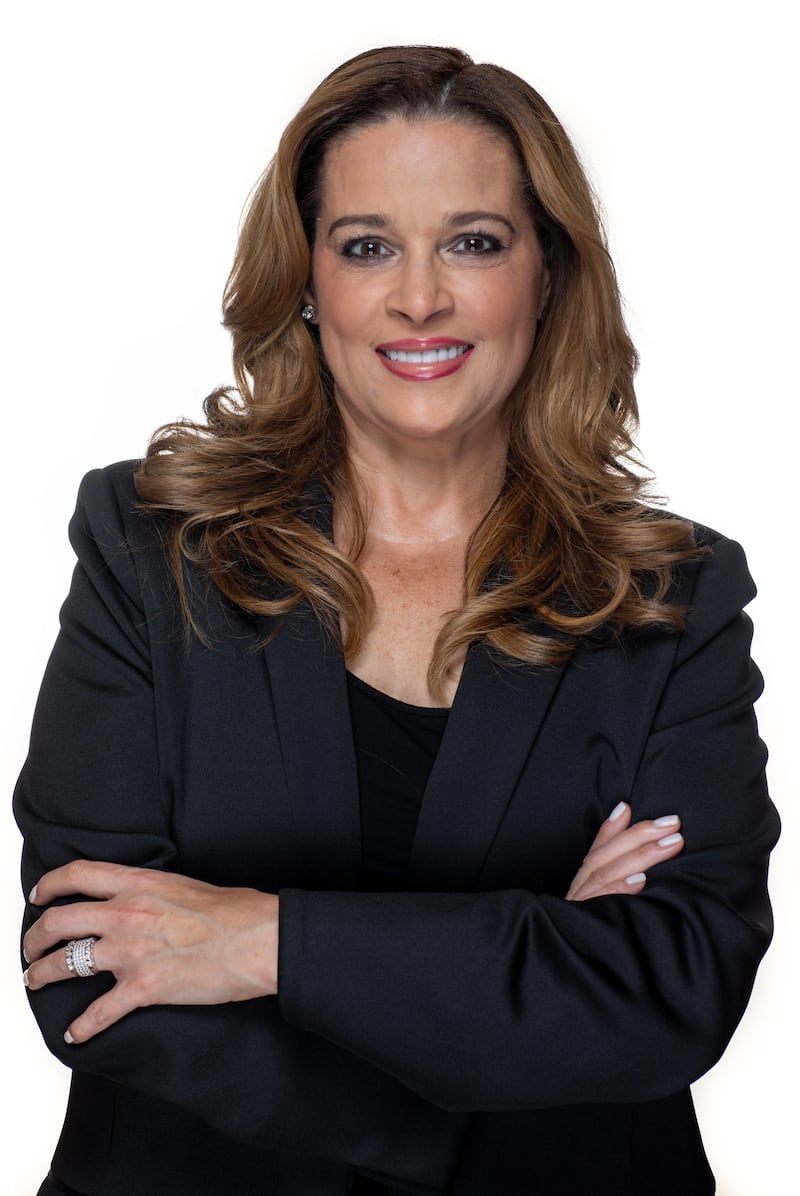
“Everyone in the family who wants to work at Nicholas and Company has to start at the bottom,” Mouskondis continues. She started as a filing clerk in human resources. Her husband, who started working at the company at age 12, began his career by picking up nails that had fallen from the pallets in the delivery yard.
“When Nicholas and Company started in 1939, food service didn’t exist as it does today,” Mouskondis says. “[My father-in-law] had the vision, and he functioned like a first-generation entrepreneur even though he was second-generation. That passion is so important and has carried over to my husband and me today, and our kids are seeing that. We live, sleep and eat for the business and our employees.”

Several years ago, Mouskondis and her husband decided to buy out the rest of their family members and run the company as co-CEOs.
“Being a ‘business first’ business, securing the stability for generations to come — not just for our family but for all of our team members — and making sure it’s run properly, that it’s sustainable, that it’s thriving — those are all things that are super important to us,” she says. “We’ve left our titles in place really more as an aspirational thing for our kids because they see in front of them the opportunity that they can have.”
COVID-19 helped shaped Mouskondis’ kids as the successors of the business, she says. Under one roof, they watched their parents in real time on Zoom calls, making difficult decisions, selling off assets so they could keep as many people employed as possible.
“They would hear our employees say, ‘You’re keeping a roof over my head.’ I think that’s when it clicked for them,” Mouskondis says. She believes succession plans and family involvement will look different for this next generation.
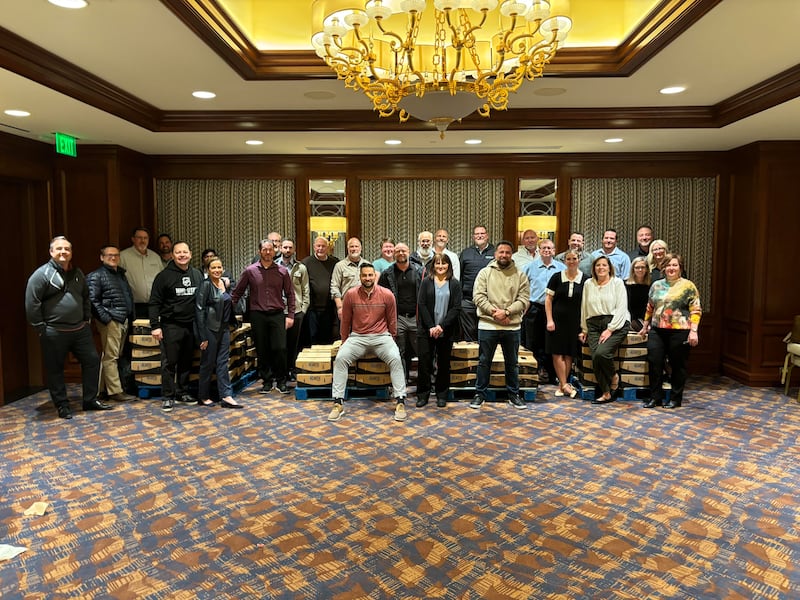
“You can’t just plop a kid into a multi-billion dollar business and say, ‘Okay, you’re running the business.’ … They will need new skills to run it than we had, just as we needed new ones when we took over. We told our kids they’ll have to work twice as hard as an employee off the street, and that’s just the way it is.”
Creating a legacy strong enough to span generations
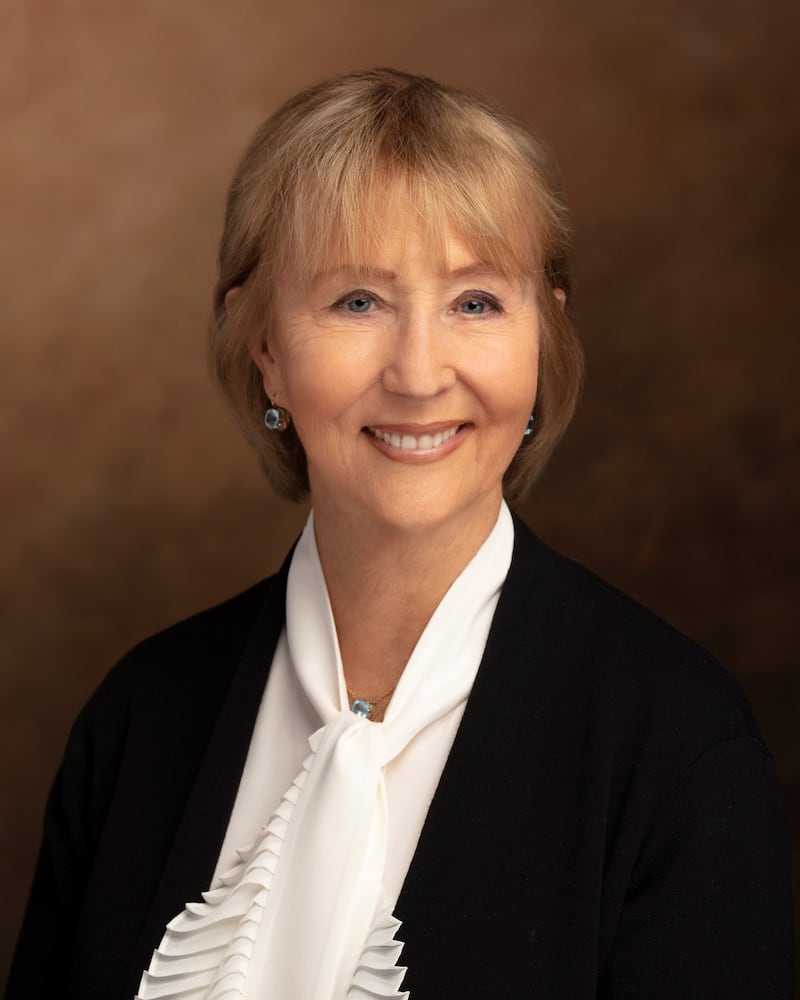
On March 29, 2020, Utah lost one of its most iconic business leaders and philanthropists when Robert Garff died from COVID-related complications. Robert was the chairman of Ken Garff Automotive Group, a former Utah House speaker, and chairman of the Salt Lake Organizing Committee for the 2002 Olympics. He also founded the Road to Success and Keys to Success programs and was a generous supporter of his alma mater, the University of Utah.
A few months after his passing, it was announced that his wife, Katharine (Kathi) Garff, would replace him as chair of Garff Enterprises’ board of directors.

Countless awards and a signed football helmet are displayed on the coffee table in the center of Kathi’s office. The Garff’s support of the University of Utah and other local entities is self-evident. The most important factor in their succession planning, it seems, is ensuring that this legacy of giving continues through those they employ.
“It started when I married Bob and met Ken Garff,” Kathi says. “One of the main things Bob told me when we first started dating is that it’s really important to give back — not just to individuals but also to neighborhoods, communities, cities and the state. That’s because of the many wonderful things our neighborhoods give back to us. … Bob and I tried to include [this philosophy] in everything we did. … We’ve tried to lead our business this way and teach our children these concepts as well.”
A culture of giving back, Kathi says, has to continue generation after generation.
“It’s not just about who is going to take over next for leading the company, but how you make sure that legacy keeps carrying on no matter who’s in charge. We ask everybody, ‘What’s your legacy? What do you want it to be?’”
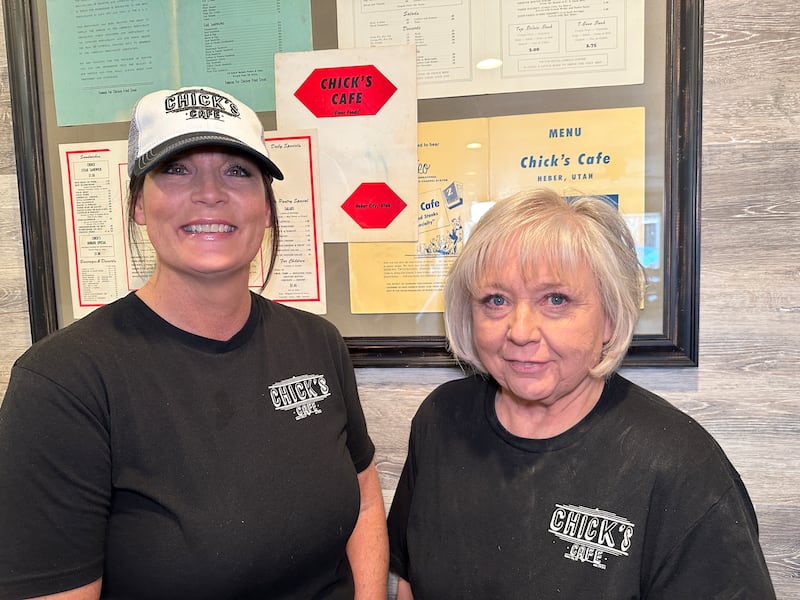
70 years of Chick’s Cafe
A Q&A with co-owner Lynette Wright.
How has keeping Chick’s Cafe in the family contributed to its success?
Since it started, we have tried to keep the menu, equipment and recipes the same because it worked. Why change your chicken noodle soup, scone recipe or pies if that’s what people are coming for?
Has the plan always been to keep Chick’s Cafe in the family?
My co-owner and sister-in-law, Shelley Ryan, started working at Chick’s when she was about 14 years old. I was hired at the age of 16. When Shelley’s dad bought the Ford dealership in town, he stepped away from Chick’s. … Between my kids, sisters and my sister’s kids, we always have family working. In the end, we’re able to keep Chick’s going because of family.
What’s your advice for entrepreneurs taking over family businesses?
Learn the business side, then learn what your employees need. If you treat your employees like family — even the ones who aren’t — they will be good to you.

